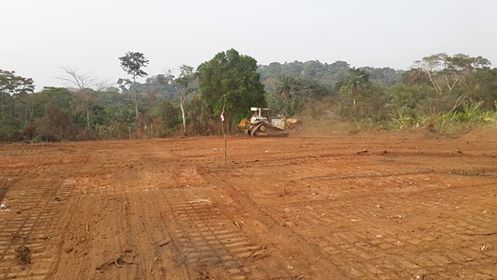The controversy surrounding the construction of the $3.5 billion super highway has deepened as the Cross River State Government has dared the Federal Government, claiming ownership of its forest.

Consequently, the state government despite the stop work order by the Federal Government and protests from impacted communities, national and international organisations including the British government pending the completion of an Environmental Impact Assessment (EIA), has continued bulldozing the forest for the 260 kilometre super highway around Etara and old Ekuri axis.
The state government had without an approved EIA revoked land 10 kilometres on both sides of the highway and moved caterpillars to sites in Ekuri, Okokori, and others which led to massive protests from affected communities and Environmentalists within and outside the country.
The Federal Government is already contemplating a court order on the state government to enforce the stop-work order even as foreign investors and Financial Institutions that indicated interest in the project have deferred interest on the super highway supposed to take off from the Sea port at Essighi in Bakassi and terminate at Gakem in Bekwara Local Government Area the boundary with Vandykkia in
But, not pleased with the position of the Federal Government and other organisations, Governor Ben Ayade, in a statement to a team of UN-REDD consultants in Calabar on the facts and fiction of the superhighway last week, said, “Essentially as a state, it is such a sad thing that people just forget where we are coming from. Cross River State as a sub-national took an institutional policy to preserve and conserve our forest because we want to stay natural.
“By the laws of the Federal Republic of Nigeria, environment falls under concurrent legislation. Therefore, we have exclusive right to manage our environment the way we choose to. As a Government we made a policy to preserve all our forests and therefore dislocated our people from their dependence on our forests.
“That dislocation has caused them pains and agony and it is our responsibility to manage it. REDD+ as currently constituted has in the last three years been more of training, educating people in understanding measurement analysis baselines, safe guards and all of that. It is appreciated, but time has come when you must reflect it on the needs of the people.”
By Anietie Akpan, Calabar (The Guardian)
